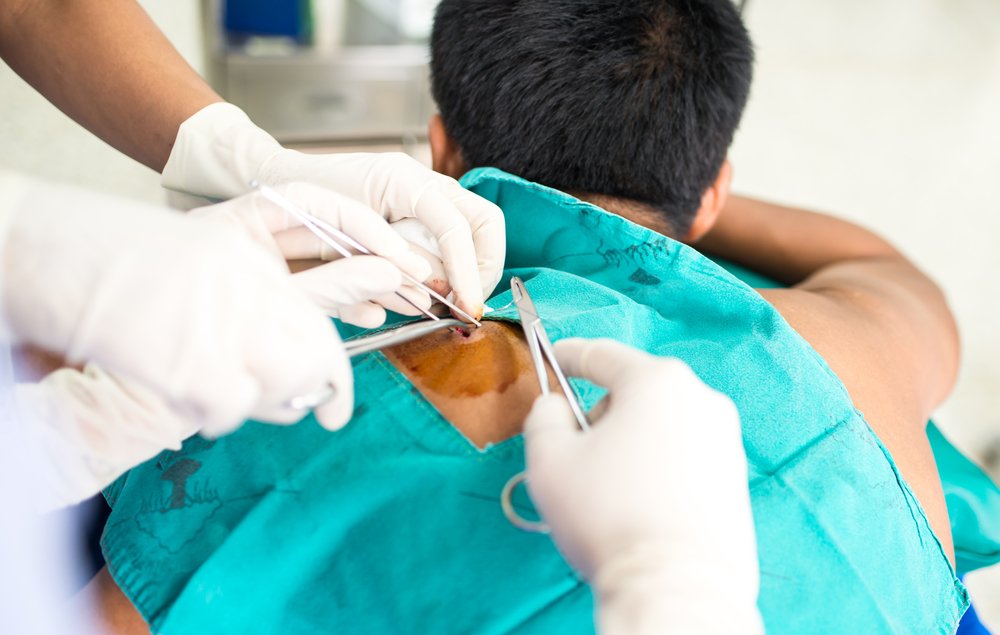FAP and Surgery

At some point in life, most people will go through some form of surgery, including those with rare diseases like familial amyloid polyneuropathy (FAP). You may need surgery due to an injury caused by an accident, or your disease may reach a point where surgery, like an organ transplant, becomes necessary.
FAP is caused by the buildup of amyloids, or protein clumps, in tissues throughout the body. These amyloids consist of abnormal transthyretin (TTR) proteins that clump together due to their irregular shape. As amyloids accumulate, disease symptoms, such as neuropathy and organ damage, become evident.
Here is more information about how FAP might result in the need for surgery, including a look at the risks associated with surgery in FAP patients.
Why might I need surgery?
Anyone can need surgery at some point in life, but having FAP can heighten the likelihood of that need.
Muscle weakness and impaired sensation due to peripheral neuropathy can make you more prone to falls and other accidental injuries, such as burns or cuts, than people without this disease. The carpal tunnel syndrome often found in FAP patients is due to their peripheral neuropathy, and as it advances surgery could be required to relieve pressure on the nerve that runs through your wrist.
The buildup of TTR amyloids in different parts of your body damages organs. To slow FAP progression, a liver transplant could be recommended, especially for people in earlier disease stages. Around 90% of the TTR protein is made in the liver, and a transplant can markedly reduce the rate at which it accumulates systemwide.
The buildup of abnormal TTR protein can also affect the kidneys, reducing their ability to filter toxins from the blood. Some patients, depending on their overall health and disease stage, may be recommended for a kidney transplant. Usually, this is combined with a liver transplant to help keep TTR amyloids from damaging the new kidneys.
Because amyloid buildup can affect the heart, patients may experience arrhythmias (irregular heartbeats) and, eventually, cardiomyopathy (a thickening and stiffening of the heart muscles, making it harder to pump blood). Although considerably more rare, a combined heart and liver transplant could be advised.
Finally, the buildup of TTR proteins in the eyes can affect vision. Some patients may need a surgery called pars plana vitrectomy to remove cloudy spots full of amyloid in the vitreous humor, the gel-like substance filling the middle of the eye. While this surgery can improve vision, it could also lead to glaucoma. To treat glaucoma, a filtration surgery or trabeculectomy may be necessary; this small surgery is done to drain some fluid from the eye and relieve intraocular pressure.
Is it risky for me?
All surgeries carry a level of risk, especially complicated surgeries like organ transplants. These risks are similar for people with FAP and the general population. But additional risks are known for FAP patients, due largely to the use of anesthesia during surgery.
If you have autonomic neuropathy, general anesthesia can lead to dangerous drops in blood pressure. This is because it causes your blood vessels to dilate, or open.
Some types of anesthetics also alter the concentration of potassium, a mineral, in the blood. This could either lead to or worsen heart arrhythmias during surgery. Because the disease can also affect the heart’s ability to pump blood, FAP with heart involvement could further complicate the use of anesthesia.
Peripheral neuropathy may interfere with some types of regional anesthesia, which normally works on peripheral nerves to block pain signals coming from those nerves. (Peripheral nerves are those located outside of the brain and spinal cord.)
Special care and monitoring needs to be given to FAP patients undergoing surgery, particularly due to the use — and type — of anesthesia that a surgery requires.
Last updated: Feb. 25, 2021
***
FAP News Today is strictly a news and information website about the disease. It does not provide medical advice, diagnosis, or treatment. This content is not intended to be a substitute for professional medical advice, diagnosis, or treatment. Always seek the advice of your physician or other qualified health provider with any questions you may have regarding a medical condition. Never disregard professional medical advice or delay in seeking it because of something you have read on this website






